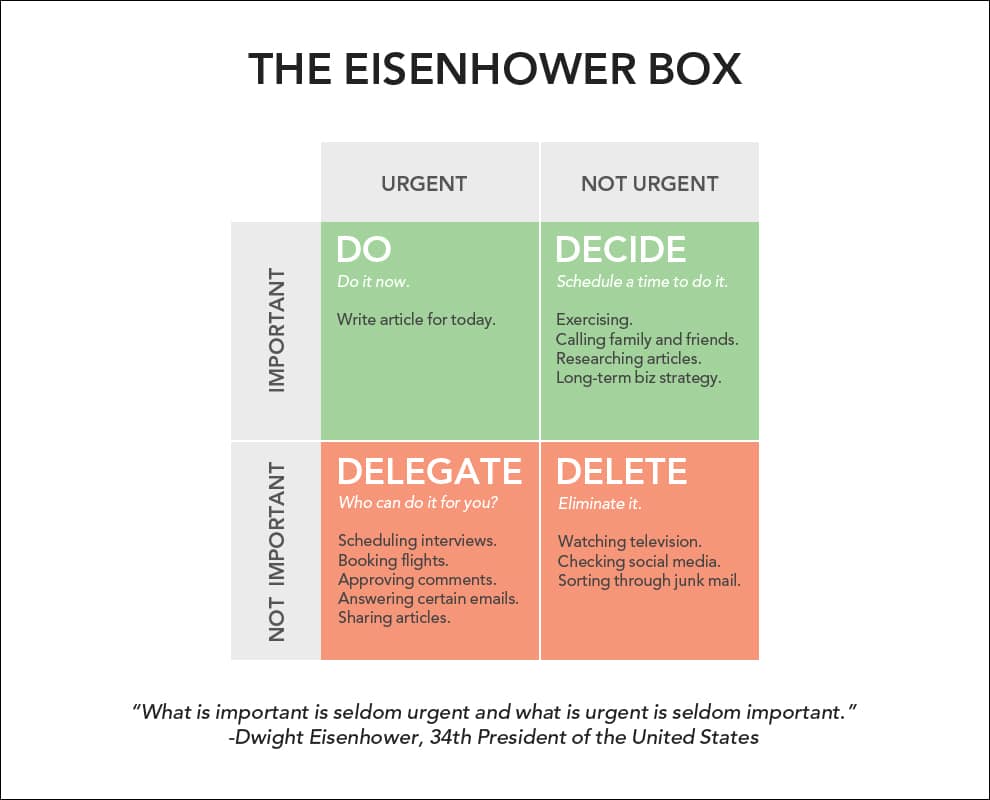Learn How to Prioritise Your Workload
Learning to prioritise your workload is a key skill for everyone, in every profession. If you’re self-employed or a small business owner, it’s especially important to prioritise as you’re always doing so many things at once.
We know it can seem overwhelming at times, especially when something goes wrong and your whole workload is thrown into disarray, so we’ve pulled together some top tips that’ll help you focus and get the work done.
First up, make a list of everything you need to do. When you’ve finished your “to do” list, pay attention to what you put down first. This could be the most pressing issue on your mind.
Next you should identify which of the jobs are the most urgent, and which are the most important. The difference between the two is simple: if you have to do it immediately, it’s urgent. If it contributes to a long-term goal, it’s important. Sometimes, jobs are both. Sometimes they’re neither.
When you’re working out how to prioritise in each case, follow the Eisenhower matrix. It works as follows:
- If it’s urgent and important: do it now.
- If it’s urgent and not important: delegate to someone else.
- If it’s not urgent but it is important: schedule a time to do it later.
- If it’s not urgent and not important: forget about it.
If you’ve got a lot of urgent tasks, you need to establish the value of each job.
You should, for example, focus on work for clients over internal errands. Deal with customer support before you crack on with social scheduling. Choose jobs with the closest deadlines so you’re not running up against it and risking unnecessary mistakes.
Another thing to remember: the more people that are impacted, the more valuable the job is likely to be. If others are waiting for you to finish your part, this should be one of your more urgent priorities.
Estimate the effort involved. Another way to approach your workload, particularly with less urgent tasks, is to establish how much effort will go into completing it.
You could start long term projects early and keep them running in the background. Alternatively, you could choose a couple of quick jobs, just to cut the list down and put yourself in a productive mindset.
Create deadlines. This is a good technique for your important and non-urgent tasks. It’s important to be realistic, as missing your own deadlines will only add to your frustration.
One way to ensure you actually meet your deadline is to make it public. It can be scary, but that’s the point – you’re making yourself accountable and giving yourself a real incentive not to miss your deadline.
If that’s not feasible (say you’re a sole-trader and there’s no-one to hold you accountable), give yourself an incentive for meeting the deadline – like an early finish, and a punishment for missing it. Just make sure you’re not the person executing it so you can’t cave in at the last minute!
When setting deadlines, see if there’s a pattern. Will completing one task make another easier? You could create a domino effect of job completion, and cut through your workload in an effective way.
Designed to keep your to-do list down and let you focus on what matters, KashFlow is hassle-free accounting software that covers everything from invoicing to daily bookkeeping and payroll for you. Cloud-based and free from jargon, it’s built with small businesses in mind.
Keep reading:
Read KashFlow’s blog to get hints and tips on everything from starting and growing a business to VAT, freelancing and much more!

